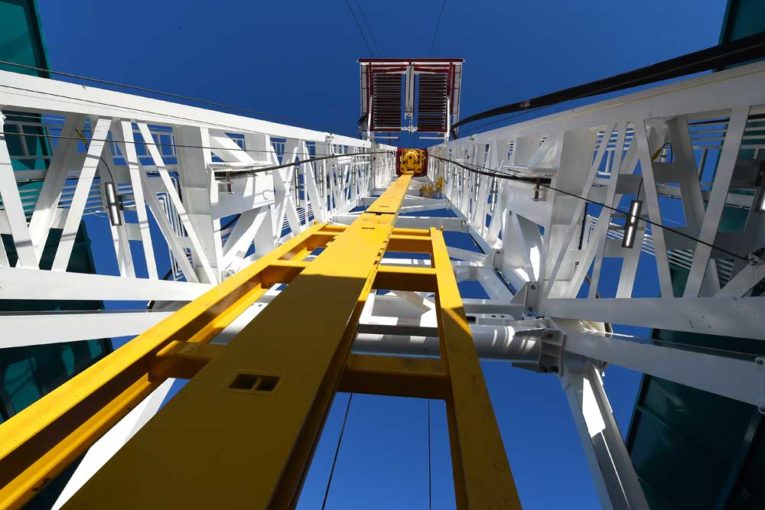
[ad_1]
CALGARY — Canadian natural gas producers are enjoying a rare spike in the price of their commodity, but the upswing could be short lived as analysts expect gas demand from the oilsands to fall amid the oil price collapse.
The AECO benchmark natural gas price traded at an average of $2.07 per thousand cubic feet on Monday — a price that’s within spitting distance of a barrel of heavy crude from the oilsands. At one stage Tuesday, Western Canadian Select was trading at US$2.76 per barrel, before spiking to US$5.71.
But as Canadian heavy oil producers contemplate temporary production shutdowns amid rock-bottom prices, analysts say gas products used to power oilsands facilities, heat oilsands reservoirs and blend with bitumen could see demand severely impaired. Oilsands producers are one of the biggest buyers of natural gas.
Analysts at RBC Capital Markets and Rystad Energy have predicted over 1.1 million barrels of daily oil production from the oilsands could be shut in this year, as a result of persistently low pricing.
Matching the reduction, Western Canadian natural gas deliveries fell by 600 million cubic feet per day at the beginning of April, according to data from CIBC World Markets.
We’re keeping our head down because, to be honest, our stock just like everyone else’s has just been massacred
Birchcliff Energy Ltd. president and CEO Jeff Tonken
“In the event we see oilsands volumes curtailed in the coming weeks, we would expect natural gas demand to soften further,” CIBC World Markets analyst Dave Popowich wrote in a research note earlier this month.
Many natural gas producers in Alberta will see their cash flow decline this year and as cash declines, companies drill less and production falls, Birchcliff Energy Ltd. president and CEO Jeff Tonken said in an interview.
Birchcliff has the balance sheet and liquidity available to withstand the coronavirus pandemic and the potential negative side effects of falling gas demand, but Tonken said he will not use the cash to buy weaker competitors.
“We’re keeping our head down because, to be honest, our stock just like everyone else’s has just been massacred. We’re going to ensure that our public guidance is strong and intact, which it is,” Tonken said.
The company is finishing a very large, 80,000 barrels of oil equivalent per day project this year, “then we’ll determine what steps we’re going to take after that based on the current commodity prices,” he said.
Other natural gas producers are also adjusting their drilling plans for the year amid uncertain forecasts for the commodity, with some analysts including at Canaccord Genuity increasing their price targets for gas and others warning of demand destruction.
“We’re making those decisions about how many wells we drill now,” Tourmaline Oil Corp. chief executive officer Mike Rose said at the Canadian Association of Petroleum Producers and Scotiabank investment conference on April 8. The company is contemplating whether to keep its production flat or allow it to decline, Rose told investors.
Advantage Oil & Gas Ltd. announced a $100-million sale of a minority interest in one of its gas processing facilities to an unnamed buyer on Monday, which the company said would be used to “fortify” the company’s balance sheet “during a time of unprecedented volatility.” The company also announced it was reworking its budget for the second half of 2020 given the pressures on the gas market.
But there is a silver living for Canadian producers. Down south the prolific Permian shale producers could shutter oil output, which would also reduce associated gas output — a byproduct — lifting natural gas prices.
Natural gas liquids such as condensates from the Permian are shipped to Alberta. The hope is that Canadian producers can pick up market share.
Texas producers are expected to curtail about 5.5 billion cubic feet of daily natural gas production, which should lift U.S. gas prices above US$3 per thousand cubic feet, analysts at Tudor Pickering & Holt wrote in a research note on Monday.
“After multiple years of associated gas being the scourge of the market, gas producers are positioned to regain control and it likely means a prolonged period of very attractive pricing, provided the lessons of capital discipline are lasting,” the analysts wrote.
As a result, it’s difficult to predict whether the supply-side relief from falling Permian production or demand-side pain from curtailed oilsands production will lift or depress prices.
“Gas could remain rather volatile here in terms of potential swings due to a lack of demand and oilsands production coming off, but if we see an equal supply response from gas being reduced from oil wells (in Texas’ Permian basin) with associated gas, it may offset each other,” Raymond James analyst Jeremy McCrea said.
“With that potential for volatility and uncertainty, it’s another factor keeping investors away from this market,” he said.
• Email:
[ad_2]
You can read more of the news on source
